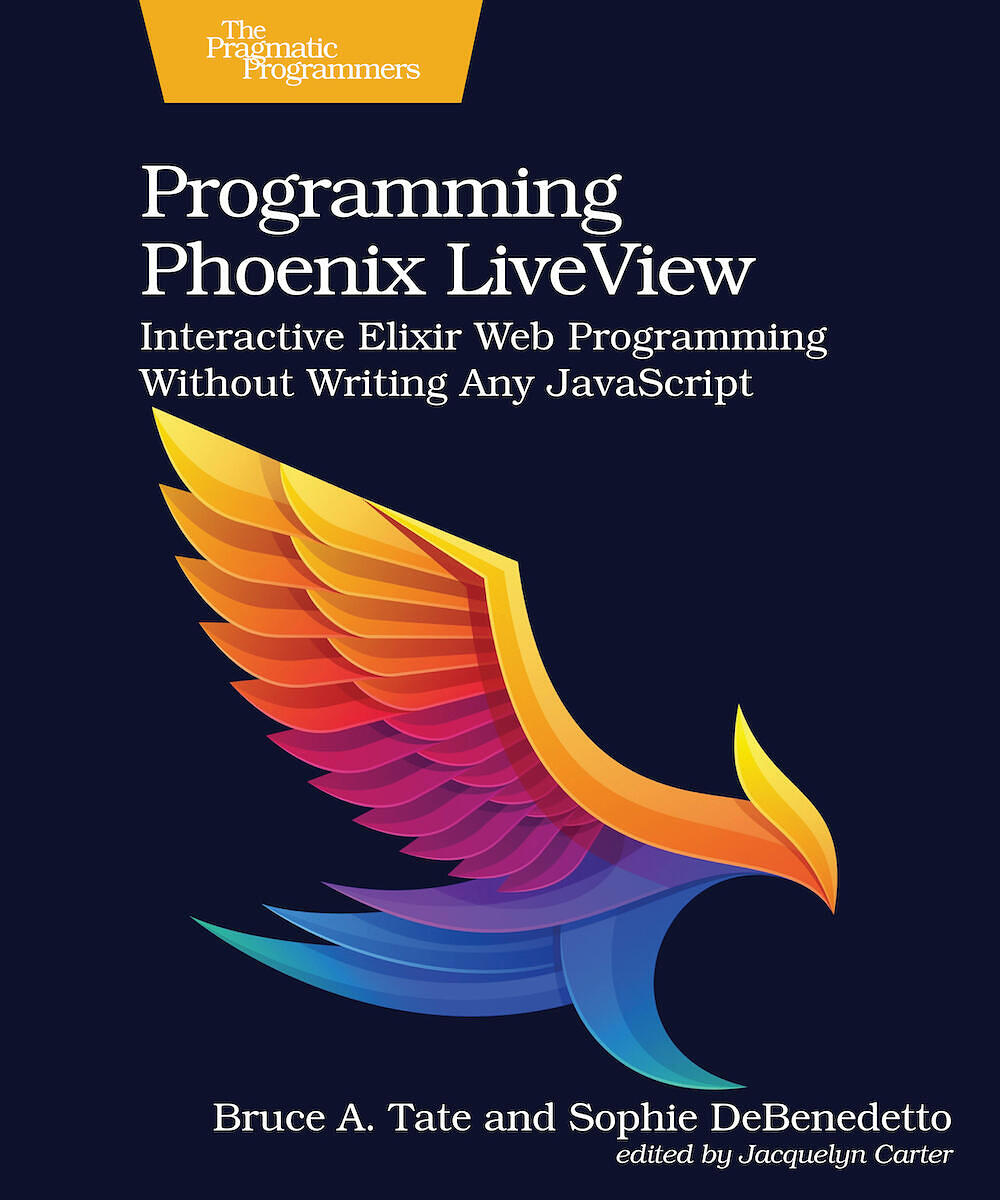Bruce A. Tate @redrapids and Sophie DeBenedetto @SophieDeBenedetto
edited by Jacquelyn Carter @jkcarter
The days of the traditional request-response web application are long gone, but you don’t have to wade through oceans of JavaScript to build the interactive applications today’s users crave. The innovative Phoenix LiveView library empowers you to build applications that are fast and highly interactive, without sacrificing reliability. This definitive guide to LiveView isn’t a reference manual. Learn to think in LiveView. Write your code layer by layer, the way the experts do. Explore techniques with experienced teachers to get the best possible performance.
Instead of settling for traditional manuals and tutorials, get insights that can only be learned from experience. Start with the Elixir language techniques that effortlessly marry your client templates and server side handlers. Design your systems with the right layers in the right places so that your code is easier to understand, change, and support. Explore features like multi-part uploads and learn how to comprehensively test your live views. Roll into advanced techniques to tie your code to other services through the powerful publish-subscribe interface.
LiveView brings the most important programming techniques from the popular Elm and JavaScript React frameworks to Elixir. You’ll experience firsthand how to harness that power by working side-by-side with some of the first LiveView users. You will write your programs to change data on the server, and you’ll see how LiveView efficiently detects those changes and reflects them on the web page. Start from scratch, use built-in generators, and craft reusable components. Your single-purpose reducers will transform server data that your renderers can turn into efficient client-side diffs.
Don’t settle for knowing how things work. To get the most out of LiveView, you need to know why they work that way. Co-authored by one of the most prolific authors and teachers in all of Elixir, this book is your perfect guide to one of the most important new frameworks of our generation.
Bruce Tate is a programmer and CEO of Groxio where he is helping to redefine how computer languages are taught and learned. He’s the author of Seven Languages in Seven Weeks and Programming Phoenix, among other titles and has been involved with Elixir from the very beginning. He’s written more than 10 books.
Sophie DeBenedetto is an engineer at GitHub. She is a former graduate of, and teacher at, The Flatiron School and has a love of coding education. She has been an active member of the Elixir community for several years—she is co-organizer of, and speaker at, different Elixir conference around the world, a podcast host, and a blogger.
- Full details: https://pragprog.com/titles/liveview/programming-phoenix-liveview
- View this book’s portal and details on how to post errata and suggestions here
Don’t forget you can get 35% off with your Devtalk discount! Just use the coupon code “devtalk.com" at checkout 


























